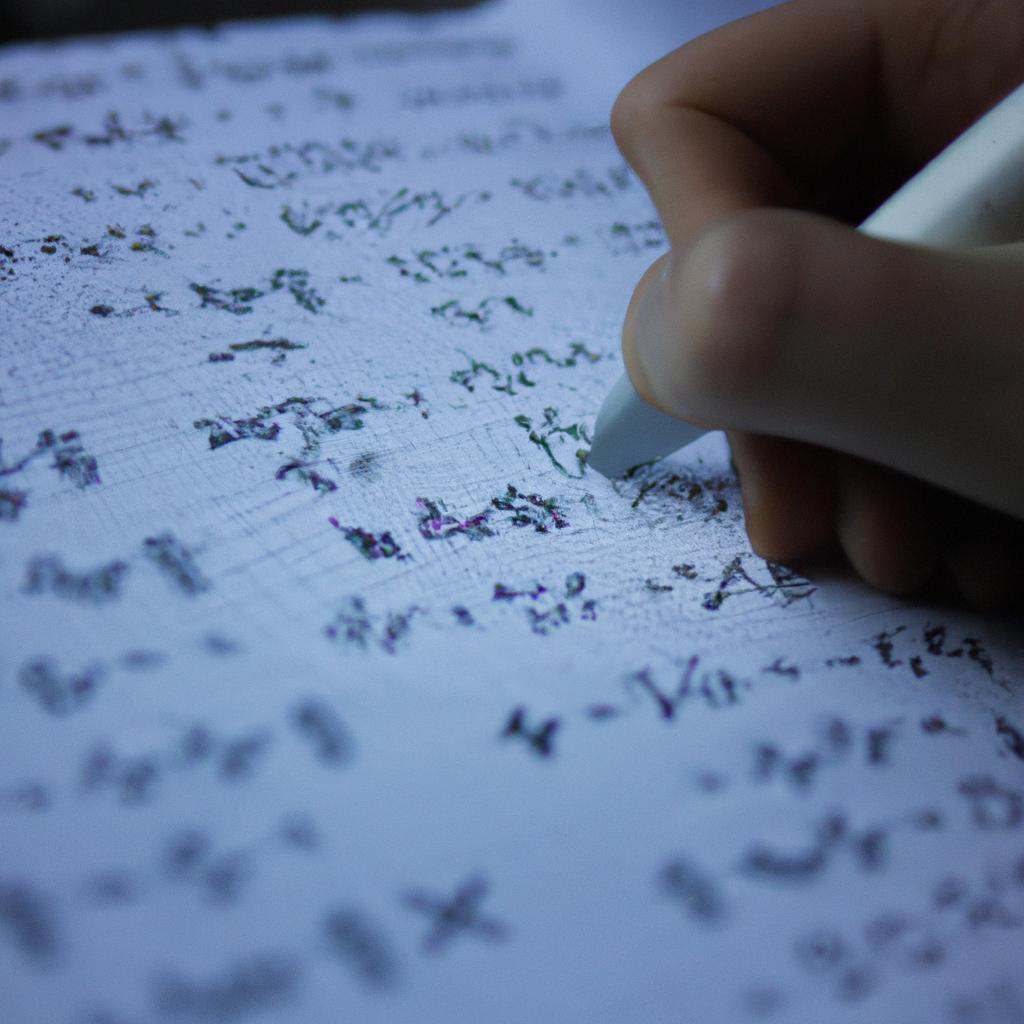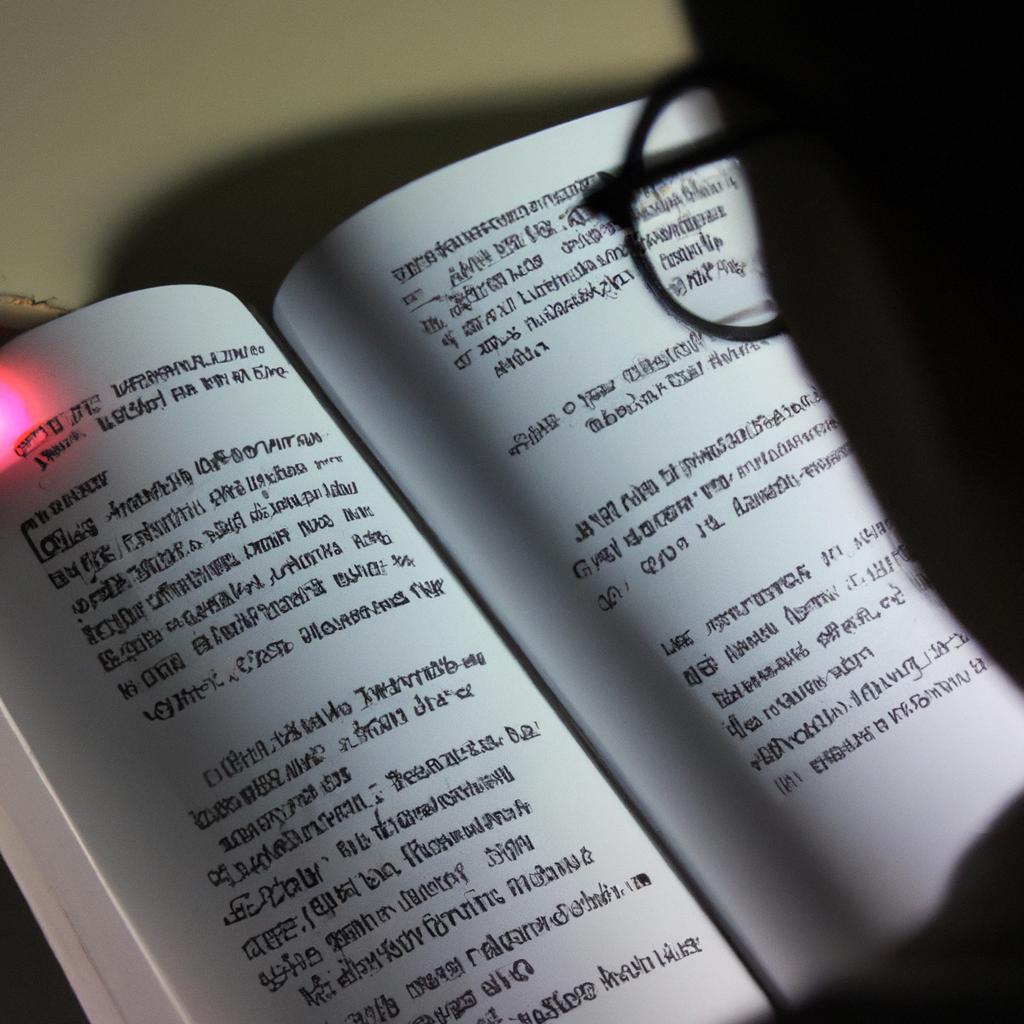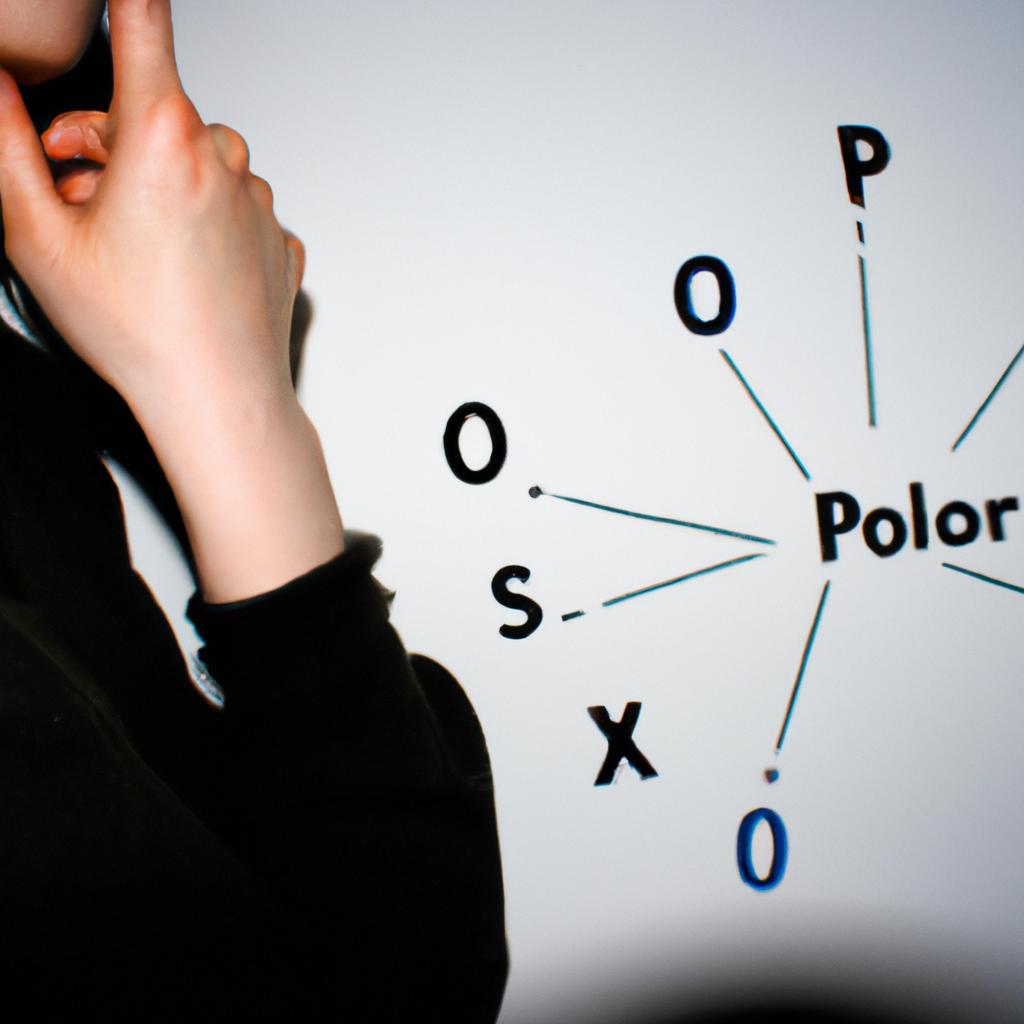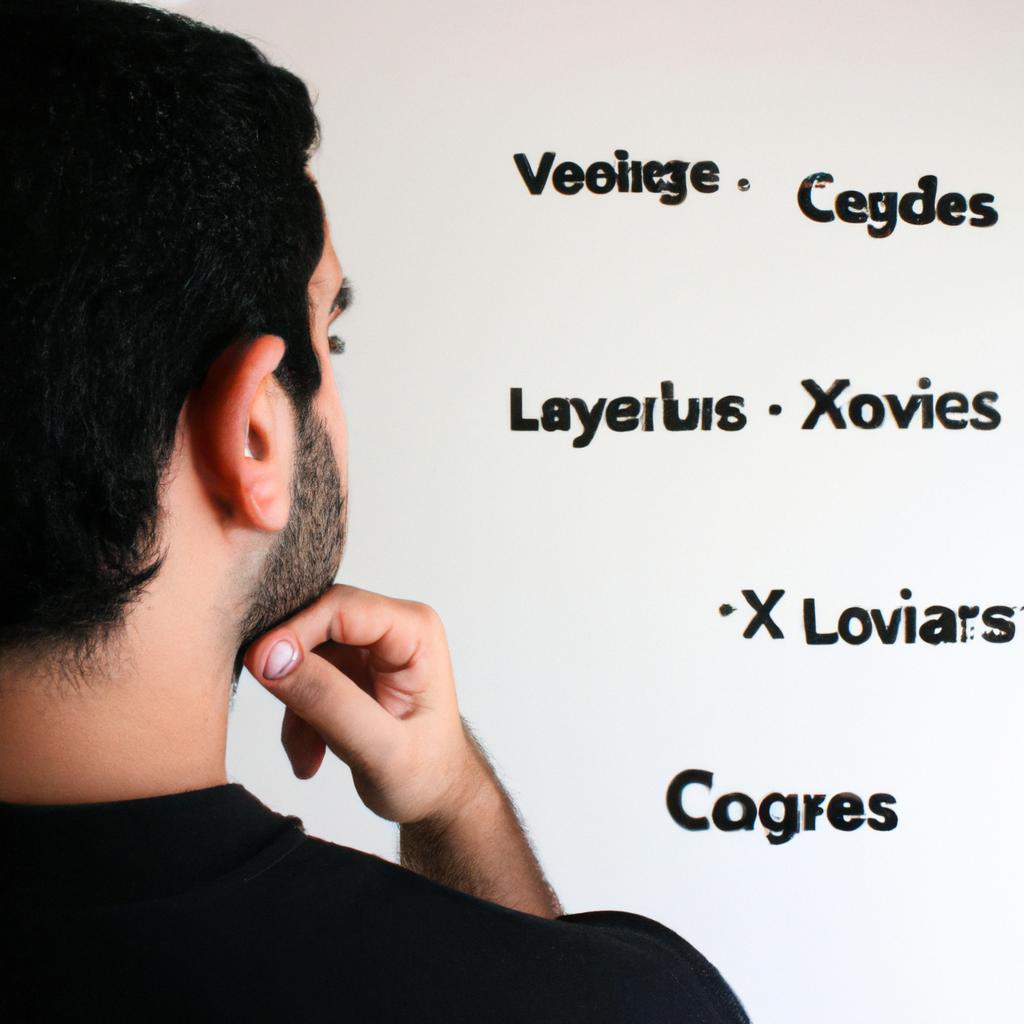Modal Logic in Philosophy: A Comprehensive Overview
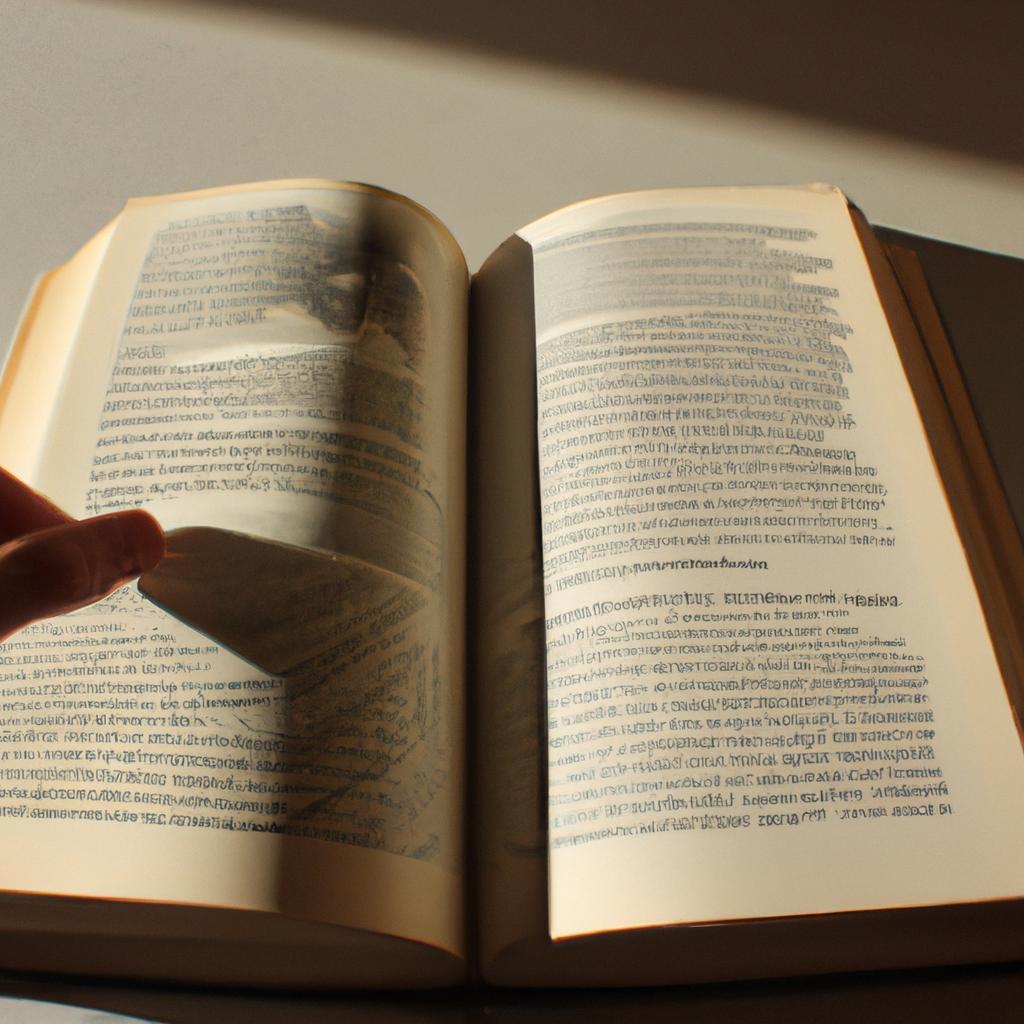
Modal logic is a branch of philosophy that deals with the study of modalities, which are expressions or concepts used to indicate possibility, necessity, contingency, or impossibility. It provides philosophers with a powerful framework for reasoning about various aspects of reality and knowledge. For example, consider the case of Socrates’ famous dictum: “An unexamined life is not worth living.” By applying modal logic to this statement, one can explore the necessary conditions under which a life becomes meaningful and examine the implications it has on our understanding of human existence.
Over the centuries, philosophers have extensively explored different systems of modal logic in order to gain deeper insights into metaphysical questions concerning modality. This comprehensive overview article aims to provide readers with an in-depth understanding of both historical developments and modern advancements within this field. Through an examination of key theories, such as possible worlds semantics and quantified modal logic, this article will elucidate how modal logic has contributed significantly to philosophical debates surrounding topics like free will, determinism, identity persistence over time, and counterfactual conditionals.
By engaging with these fundamental concepts and examining their applications across various domains of philosophy, readers will not only develop a solid foundation in modal logic but also appreciate its profound impact on contemporary philosophical discourse and its broader implications for understanding the nature of reality, knowledge, and our place within it. Whether exploring questions about the limits of human understanding, the existence of alternative possibilities, or the nature of necessity and contingency, modal logic provides a rigorous framework for analyzing and evaluating these concepts. By delving into the intricacies of modal logic, readers can gain valuable insights that extend beyond philosophy to other disciplines such as computer science, linguistics, and artificial intelligence. With its rich history and ongoing developments, modal logic continues to be an essential tool for philosophers seeking to unravel the complexities of existence and expand our understanding of the world around us.
What is Modal Logic?
Modal logic is a branch of formal logic that deals with the study of modalities, which are expressions used to qualify statements by indicating possibility, necessity, or contingency. These modalities allow us to reason about alternative worlds or possible states of affairs and have been widely employed in various fields such as philosophy, computer science, linguistics, and mathematics.
To illustrate its application, let’s consider a hypothetical scenario involving two individuals named Alice and Bob. Suppose Alice says, “It is possible that it will rain tomorrow.” Here, the modal operator ‘possible’ is used to indicate that there exists at least one world where it rains tomorrow. On the other hand, if Bob were to say, “It is necessary for me to eat breakfast every day,” he would be using the modal operator ‘necessary’ to express an obligation or requirement that holds true in all possible worlds.
Modal logic allows us to analyze these types of statements rigorously and develop reasoning systems based on their underlying principles. By providing a framework for understanding possibilities and necessities within different contexts, this logical system enables deeper philosophical investigations into concepts like knowledge, belief, time, identity, and causality.
In exploring the scope and implications of modal logic further, we can identify several key features:
- Expressive power: Modal logic expands upon classical propositional logic by introducing additional operators (modalities) that capture nuances related to possibility and necessity.
- Formal semantics: The interpretation of modal formulas relies on assigning truth values not only in terms of actuality but also across different possible worlds.
- Proof theory: Modal logic has developed various proof methods aimed at establishing soundness and completeness results for specific systems.
- Applications: Modal logic finds practical applications in areas including artificial intelligence planning systems, natural language processing algorithms, database querying mechanisms, legal reasoning frameworks – just to name a few.
As we delve deeper into the historical development of modal logic, we will gain a richer understanding of its origins and evolution over time.
Historical Development of Modal Logic
Section H2: Modal Logic in Philosophy: A Comprehensive Overview
Having gained an understanding of what modal logic entails, we now turn our attention to its historical development. By examining the roots and evolution of this branch of logic, we can appreciate how it has shaped philosophical discourse throughout history.
Section H2.1: Historical Development of Modal Logic
To illustrate the significance of modal logic’s historical trajectory, let us consider a hypothetical scenario involving two philosophers, Aristotle and Leibniz. Imagine that both scholars are engaged in a lively debate regarding the existence of possible worlds. Aristotle argues that there is only one actual world while Leibniz posits the existence of multiple possible worlds coexisting alongside our own. This thought experiment elucidates the fundamental question at the heart of modal logic – namely, how do different modes or possibilities relate to reality?
To provide a comprehensive overview of modal logic’s historical development, we present the following key points:
-
Ancient Origins:
- Early traces in ancient Greek philosophy
- Stoic contributions to propositional attitudes
-
Medieval Advances:
- Influence of Islamic logicians such as Avicenna and Averroes
- Duns Scotus’ distinction between necessary and contingent truths
-
Modern Formulations:
- C.K. Lewis’ pioneering work on modal realism
- Saul Kripke’s influential semantics for modal logic
-
Contemporary Applications:
- Modal logic applied in computer science (e.g., model checking)
- Philosophical exploration of necessity and possibility
Table: Major Figures in Modal Logic History
| Philosopher | Contributions | Era |
|---|---|---|
| Aristotle | Conceptualization of necessity and essence | Ancient |
| Leibniz | Development of possible worlds theory | Enlightenment |
| C.K. Lewis | Advancement of modal realism | 20th century |
| Saul Kripke | Semantics for modal logic | Contemporary |
By delving into the historical development of modal logic, we gain a deeper appreciation for its rich intellectual heritage. This exploration allows us to grasp how influential philosophers and logicians have shaped our understanding of necessity, possibility, and alternative worlds throughout different eras. In the following section on “Key Concepts in Modal Logic,” we will further examine the foundational principles that underpin this fascinating field.
Key Concepts in Modal Logic
Section H2: Modal Logic in Philosophy: A Comprehensive Overview
Transitioning from the historical development of modal logic, we now turn our attention to key concepts that form the foundation of this branch of philosophy. To illustrate the practical application of these concepts, let us consider a hypothetical scenario involving an ethical dilemma. Imagine a doctor who faces a difficult decision regarding whether or not to administer potentially life-saving medication to a terminally ill patient without their explicit consent.
When exploring modal logic in philosophy, several crucial ideas emerge:
- Possible Worlds: This concept posits that there are multiple distinct ways reality could be, each corresponding to a different possible world. These worlds represent alternative states of affairs and can help philosophers analyze counterfactual scenarios.
- Necessity and Contingency: Within modal logic, necessity refers to propositions that are true in all possible worlds, while contingency pertains to propositions that may be true in some worlds but false in others. This distinction aids philosophers in examining the nature of truth and possibility.
- Alethic Modalities: Alethic modality deals with notions such as necessity (what must be) and possibility (what could be). These modalities allow philosophical analysis beyond what is merely actual.
- Accessibility Relations: The notion of accessibility relations helps establish connections between possible worlds by defining which ones are accessible from others. It assists in understanding how certain situations relate to one another across different worlds.
| Concept | Definition | Example |
|---|---|---|
| Possible Worlds | Hypothetical realities representing alternative states | In one world, humans have wings;in another, they do not |
| Necessity | Propositions that hold true across all possible worlds | It is necessary for all triangles to have three sides |
| Contingency | Propositions that may vary in truth across possible worlds | The outcome of a coin toss is contingent on chance |
| Alethic Modalities | Modes of possibility and necessity beyond the actual | It is possible that life exists on other planets |
In summary, modal logic in philosophy encompasses various key concepts such as possible worlds, necessity and contingency, alethic modalities, and accessibility relations. These ideas provide philosophers with tools to analyze hypothetical scenarios, explore truths across different realities, and delve into the nature of what must be and what could be. Building upon this foundation, we will now investigate the relationship between modal logic and metaphysics.
Section H2: Modal Logic and Metaphysics
Modal Logic and Metaphysics
Transitioning from the exploration of key concepts in modal logic, we now turn our attention to the intricate relationship between modal logic and metaphysics. To illustrate this connection, let us consider a hypothetical scenario involving Alice and Bob. Imagine that Alice claims, “It is possible that it will rain tomorrow.” On the other hand, Bob insists, “It is necessary that if it rains tomorrow, I will bring an umbrella.”
One crucial aspect of modal logic’s intersection with metaphysics lies in analyzing statements like those made by Alice and Bob. By employing modal operators such as ‘possible’ and ‘necessary,’ philosophers delve into questions regarding possibility, necessity, contingency, determinism, free will, and causality. These investigations aim to understand fundamental aspects of reality beyond what can be observed or directly experienced.
To provide a comprehensive overview of modal logic’s role in metaphysical inquiries, we present four key points for consideration:
- Modal realism: This philosophical position posits that possible worlds are not merely abstract entities but rather concrete realities on par with our own world. It raises profound questions about existence and the nature of reality itself.
- Essentialism: Within modal logic, essential properties are those that define the core identity of an object or entity. Discussions surrounding essentialism explore whether certain qualities are intrinsic and necessary or contingent upon external factors.
- Causation: The study of modality also extends to investigating causal relations between events or states of affairs. Questions arise concerning whether causation is determined solely by natural laws or if there exists room for alternative possibilities.
- Free will versus determinism: Modal logic offers a framework for examining debates surrounding human agency. Philosophers inquire into whether individuals possess genuine freedom to choose their actions or if all events unfold according to predetermined causes.
To further grasp the significance of these topics within modal logic and metaphysics, refer to Table 1 below:
| Topic | Definition | Example |
|---|---|---|
| Modal realism | The belief in the existence of multiple concrete possible worlds. | Alice believes parallel universes exist beyond our own reality. |
| Essentialism | The view that objects have inherent, defining properties. | Bob argues that kindness is an essential trait for true friendship. |
| Causation | The relationship between cause and effect. | Alice claims that rain causes the flowers to bloom every spring. |
| Free will | The ability to make choices independently of external influences. | Bob asserts that humans possess free will and are not predetermined beings. |
As we delve deeper into these concepts, it becomes apparent how modal logic serves as a powerful tool for examining metaphysical questions about the nature of reality, identity, causality, and human agency. In the upcoming section on “Applications of Modal Logic,” we will explore how this logical framework extends its reach beyond philosophy into various fields such as computer science, linguistics, and artificial intelligence, demonstrating its practical significance alongside its theoretical value.
Applications of Modal Logic
Section H2: Applications of Modal Logic
In the previous section, we explored the intricate relationship between modal logic and metaphysics. Now, let us turn our attention to the diverse applications of modal logic in various fields. To illustrate its practical relevance, consider a hypothetical scenario where modal logic is employed in computer science for designing intelligent systems capable of decision-making under uncertain conditions.
One prominent application of modal logic lies in artificial intelligence (AI) research. By utilizing possible-world semantics, AI practitioners can model complex domains with inherent uncertainty or incomplete information. For example, imagine an autonomous vehicle navigating through a busy city intersection. Through modal operators such as “necessarily” and “possibly,” researchers can encode different traffic scenarios based on varying degrees of certainty regarding other vehicles’ movements. This allows the AI system to make informed decisions while considering multiple plausible outcomes.
The broad range of applications for modal logic extends beyond AI and into other disciplines:
- Philosophy: Modal logic plays a crucial role in analyzing philosophical concepts like necessity, possibility, causality, and identity.
- Mathematics: Modal logic finds utility in formalizing mathematical proofs involving inaccessible objects or abstract structures.
- Linguistics: Linguists employ modal logic to investigate natural language expressions that convey meanings related to modality and conditionality.
- Epistemology: Within epistemological inquiries, modal operators help analyze knowledge claims by distinguishing beliefs that are necessarily true from those that are merely contingently true.
To further highlight the significance of these applications, consider the following table presenting real-life examples where modal logic has been instrumental:
| Field | Application | Example |
|---|---|---|
| Computer Science | Artificial Intelligence | Autonomous robots making decisions based on uncertain data |
| Philosophy | Metaphysics | Examining the nature of existence across possible worlds |
| Mathematics | Set Theory | Investigating inaccessible infinities |
| Linguistics | Semantics | Analyzing the meaning of modal verbs in language |
As we can see, modal logic finds practical use in diverse areas, demonstrating its versatility and relevance. In the subsequent section on “Current Debates in Modal Logic,” we will delve into ongoing discussions surrounding this fascinating field. By exploring these debates, we will gain a deeper understanding of the evolving nature and future potential of modal logic’s applications.
Section H2: Current Debates in Modal Logic
Current Debates in Modal Logic
Section H2: Current Debates in Modal Logic
Transitioning from the applications of modal logic, this section delves into the current debates surrounding its use and implications. One intriguing case study that exemplifies these debates is the famous “Twin Earth” thought experiment proposed by philosopher Hilary Putnam. In this scenario, we imagine an exact replica of Earth called Twin Earth, where everything is identical to our own planet except for one crucial difference – instead of water, it has a substance known as XYZ.
To provide a comprehensive overview of the ongoing discussions within modal logic, several key points emerge:
- The Nature of Possible Worlds: Central to modal logic is the concept of possible worlds—hypothetical alternative realities with different sets of truths. Philosophers debate whether these possible worlds are concrete entities or merely abstract constructs.
- Modal Collapse: This term refers to when all statements become necessarily true or false due to certain interpretations of modal logic. The question arises as to whether this collapse undermines the usefulness and validity of modal logic itself.
- Counterfactual Reasoning: Modal logic often deals with counterfactuals—statements about what would have been true under different circumstances. Controversy surrounds how best to understand and apply counterfactual reasoning within modal logic systems.
- Connections Between Modalities: Another area of contention lies in exploring the connections between various types of modality, such as necessity (what must be) and possibility (what could be). Understanding their relationships aids in refining our grasp on modal logic’s scope and limitations.
These debates can be further elucidated through a table comparing different philosophical positions:
| Position | View on Possible Worlds | Stance on Modal Collapse | Interpretation of Counterfactuals |
|---|---|---|---|
| Realism | Concrete Existence | Rejects Modal Collapse | Closely Aligned with Causal Theories |
| Fictionalism | Abstract Constructs | Acknowledges Modal Collapse | Interpreted as Counterfactual Stories |
| Constructivism | Mental Constructions | Ambivalent on Modal Collapse | Emphasizes Contextual Dependence |
In summary, the current debates in modal logic revolve around fundamental questions regarding the nature of possible worlds, the potential collapse of modality, and effective interpretations of counterfactual reasoning. By examining various philosophical positions and their implications, scholars continue to grapple with these complex issues surrounding modal logic.
(Note: It is important to note that this section aims to provide an objective overview of the ongoing debates within modal logic while maintaining academic style and tone.)


